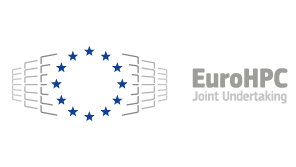The Centre of Excellence on Performance Optimization and Productivity (POP CoE) was launched in October 2015 with the fundamental goal of supporting a broad community of HPC application developers and users in both academia and industry. The POP CoE helps them to understand the performance-related problems of their applications and thus improve their efficiency and productivity. This is achieved by providing an external and objective review of code performance for all interested users, providing not only a qualitative but also a quantitative analysis using POP tools and methods.
The current project, Performance Optimization and Productivity 3 (POP3), continues the extremely successful work of the first two phases. It is divided into three main pillars: services, users and co-design.
The POP services focus mainly on performance assessments with the aim of determining code performance and scaling, identifying the main causes of inefficiency and providing guidance and recommendations for improvement. POP3 also offers higher value services that have been expanded in scope to include proof of concept, energy efficiency and consulting studies. POP3 focues on upscaling applications by evaluating the execution of some so-called flagship applications of other CoEs on the current EuroHPC machines. However, POP3 continues also to provide services to all HPC users to promote efficient use of computing resources.
The aspect of co-design is pursued in two dimensions. Internally in POP3, the tools and methodology will be jointly developed so that all desired applications can be analyzed on the chosen platform at the chosen scale. Externally, POP3 will offer a database of best practices and computational algorithms to other European projects and to all developers of parallel applications.
The user pillar consists of the work areas dissemination, user training, customer development and customer satisfaction.

